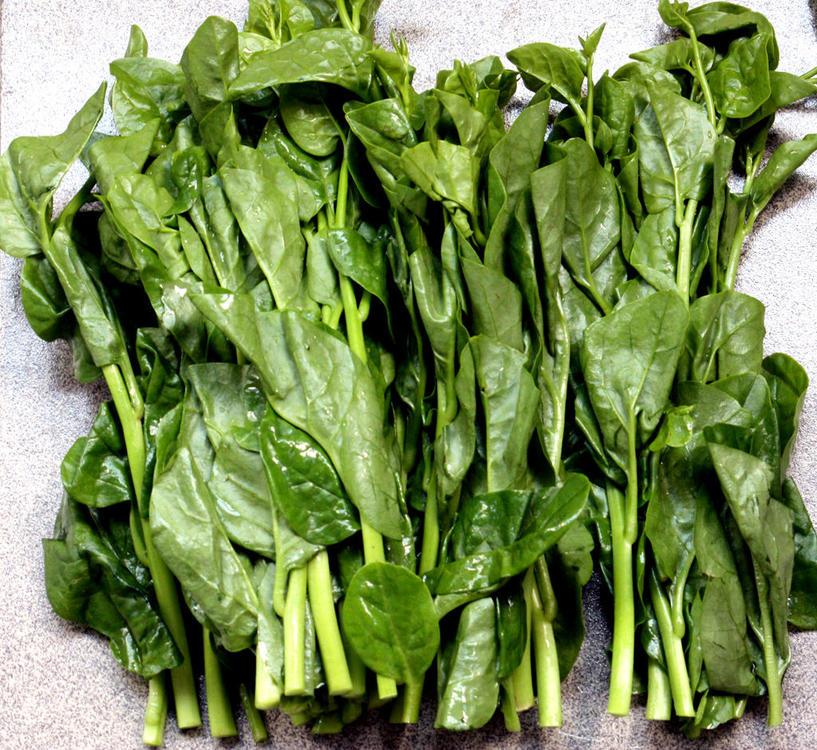As it has been mentioned, I'm also bringing this one forward.
Basella alba
木耳菜 (Mand: mù ěr cài; Cant: muk6 ji5 coi2; literally 'wood ear vegetable') seems to be most commonly called Malibar spinach in English.
Not closely related to true spinach, it has many names in both Chinese and English. In English - vine spinach, red vine spinach, climbing spinach, creeping spinach, buffalo spinach and Ceylon spinach among others.
In Chinese - 紫角叶, 胭脂菜, 胭脂豆, 蚕菜, 木耳菜, 天葵, 胡臙脂, 牛皮凍, 蟳公菜, 蟳管菜, 蟳菜, 蝟菜, 軟筋菜, 軟姜仔, 藤菜, 藤葵, 蔠葵, 非洲菠菜, 繁露, 蘩露, 龍宮菜, 潺菜. No! I'm not going to transliterate all of those!
It is usually briefly stir fried or added to soups. Over-cooking it can make it somewhat mucilaginous or slimy, similar to the sliminess associated with okra. It can also be eaten raw but is somewhat tough and peppery.
It has no connection to the similarly named fungus, 木耳 (wood ear fungus).
It is easily differentiated from true spinach which has purple tinged stems and roots. However, there is apparently a variety of Basella - Basella rubra which does have red to purplish stems and roots. I've never seen it, though.



